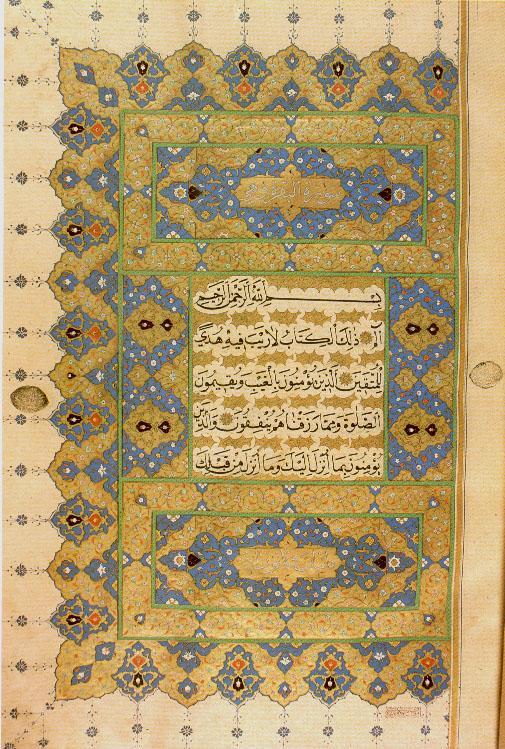Āyah on:
[Wikipedia]
[Google]
[Amazon]

 An Ayah ( ar, آية, ʾĀyah, ; ) is a "verse" in the
An Ayah ( ar, آية, ʾĀyah, ; ) is a "verse" in the

 An Ayah ( ar, آية, ʾĀyah, ; ) is a "verse" in the
An Ayah ( ar, آية, ʾĀyah, ; ) is a "verse" in the Quran
The Quran (, ; Standard Arabic: , Quranic Arabic: , , 'the recitation'), also romanized Qur'an or Koran, is the central religious text of Islam, believed by Muslims to be a revelation from God. It is organized in 114 chapters (pl.: , ...
, one of the statements of varying length that make up the chapters ('' surah'') of the Quran and are marked by a number. In the Quranic context the word means "evidence," "sign" or "miracle," and in Islam may refer to things other than Quranic verses, such as religious obligations (''ayat taklifiyyah'') or cosmic phenomena (''ayat takwiniyyah''). In the Quran it is referred to in several verses such as:
Overview of the meaning
Although meaning "verse" when using the Quran, it is doubtful whether "''ayah''" means anything other than "sign," "proof," or "remarkable event" in the Quran's text. The "signs" refer to various phenomena, ranging from the universe, its creation, the alternation between day and night, rainfall, and the life and growth of plants. Other references are tomiracle
A miracle is an event that is inexplicable by natural or scientific lawsOne dictionary define"Miracle"as: "A surprising and welcome event that is not explicable by natural or scientific laws and is therefore considered to be the work of a divi ...
s or to the rewards of belief and the fate of unbelievers. For example:
: "And of his signs is the creation of the heavens and earth and what He has dispersed throughout them of creatures." ( Q42:29)
: "And a sign for them is the dead earth. We have brought it to life and brought forth from it grain, and from it, they eat." ( Q36:33)
: "... and they denied him; therefore we destroyed them. Herein is indeed a sign yet most of them are not believers." ( Q26:139)
: "... you are but a mortal like us. So bring some sign if you are of the truthful." ( Q26:154)
Chapters ('' Surah'') in the Quran consist of several verses, varying in number from 3 to 286. Within a long chapter, the verses may be further grouped into thematic sequences or passages.
For the purpose of interpretation, the verses are separated into two groups: those that are clear and unambiguous ('' muhkam'') and those that are ambiguous (''mutashabeh''). This distinction is based on the Quran itself: "It is God Who has sent down to you the Book. In it are verses that are 'clear', they are the foundation of the Book. Others are 'allegorical' but those in whose hearts is perversity follow the part thereof that is allegorical, seeking discord, and searching for its hidden meanings, but no one knows its hidden meanings except God. And those who are firmly grounded in knowledge say: We believe in the Book, the whole of it is from our Lord. And none will grasp the Message except men of understanding."
The word ''ayah'' is also used to refer to the verses of the Bible by Arab Christian
Arab Christians ( ar, ﺍَﻟْﻤَﺴِﻴﺤِﻴُّﻮﻥ ﺍﻟْﻌَﺮَﺏ, translit=al-Masīḥīyyūn al-ʿArab) are ethnic Arabs, Arab nationals, or Arabic-speakers who adhere to Christianity. The number of Arab Christians who l ...
s and Christians in countries where Arabic words are used for religious terms.
A common myth persists that the number of verses in the Quran is 6,666. In fact, the total number of verses in Quraan is 6,236 excluding '' Bismillah'' and 6348 including '' Bismillah''. (There are 114 Chapters in the Qur'an, however there are only 113 '' Bismillah''Unicode
Unicode, formally The Unicode Standard,The formal version reference is is an information technology standard for the consistent encoding, representation, and handling of text expressed in most of the world's writing systems. The standard, ...
symbols for a Quran verse, including U+06DD (), and U+08E2 ().
The first ayahs in the Quran from a chronological order are ''Read Muhammad!in the name of your Lord who created. ( Q96:1) He created man from a clot. (96:2) Read, and your Lord is the Most Honorable (96:3) who taught with the pen'' from surah Al-Alaq. The first ayahs from a traditional order are ''In the name of God, the Merciful, the Compassionate'' from surah Al-Fatiha. The first ayahs after the opening surah are '' Alif Lam Mim. This is the Scripture whereof there is no doubt, a guidance unto those who ward off (evil)'', from surah Al-Baqara.
See also
* Quranism *Ayatollah
Ayatollah ( ; fa, آیتالله, āyatollāh) is an honorific title for high-ranking Twelver Shia clergy in Iran and Iraq that came into widespread usage in the 20th century.
Etymology
The title is originally derived from Arabic word ...
References
Notes
Citations
{{Reflist Components of the Quran Islamic terminology